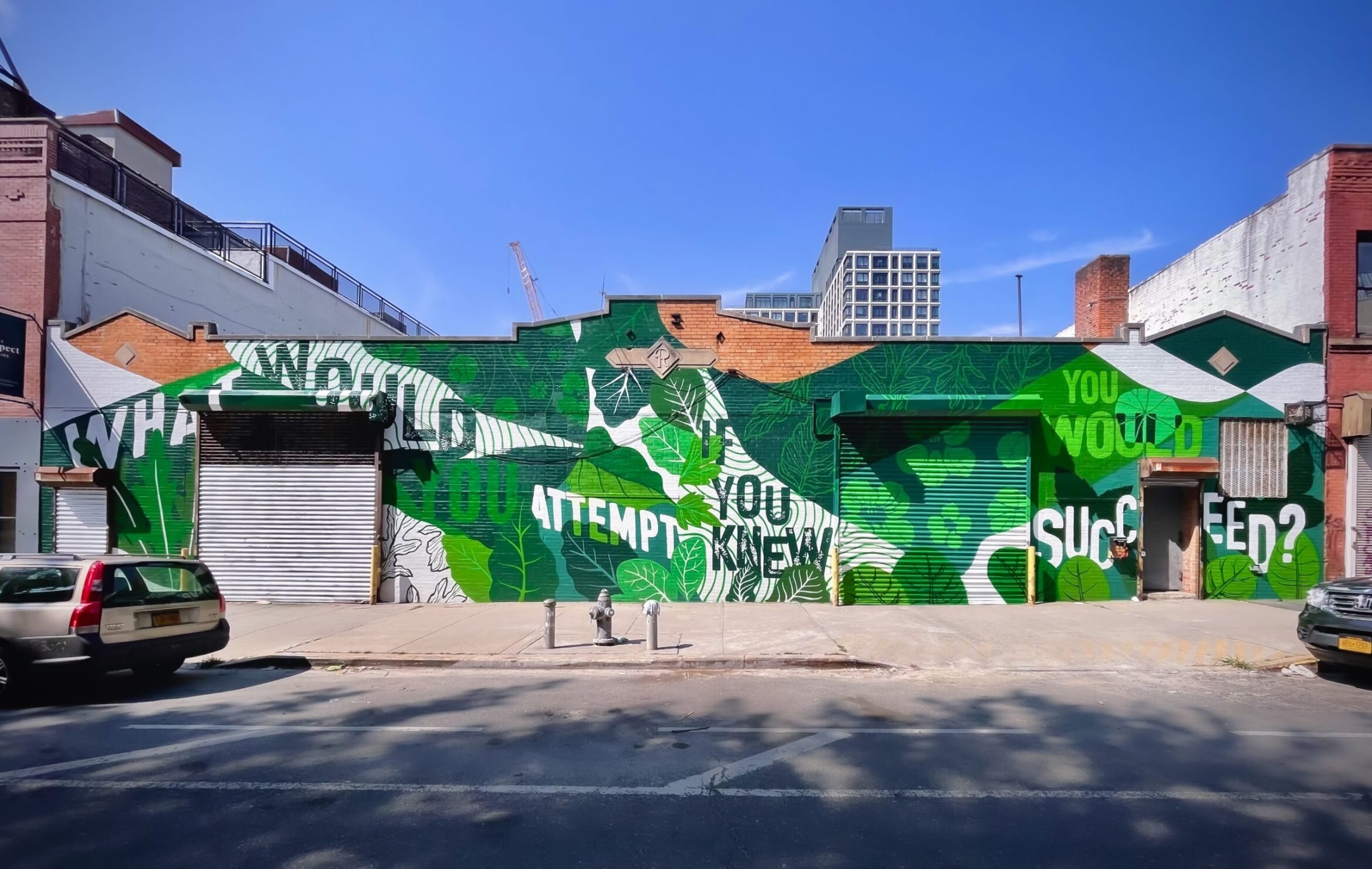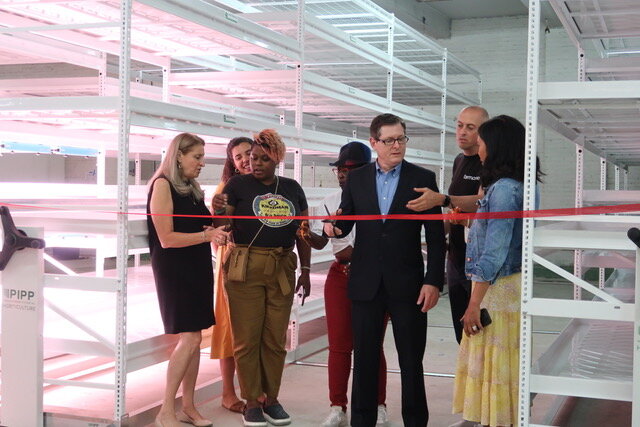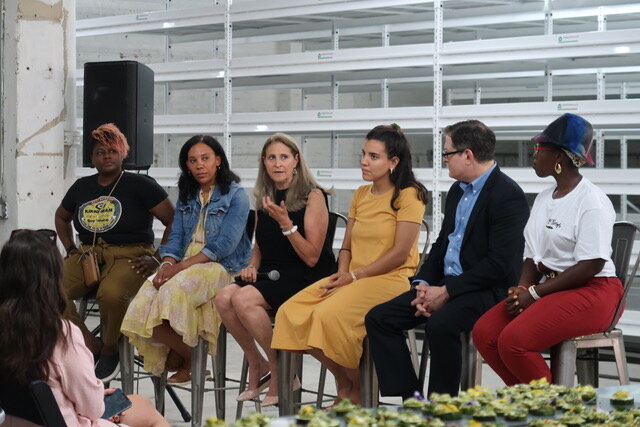Jul 2, 2021
Farm.One Cuts The Ribbon On New Urban Farm In Prospect Heights
.jpg)
Photo: Farm.One.
Editor’s Note: As a former client and fellow member of the NYC Agriculture Collective, Agritecture is proud and excited for Farm.One’s expansion to Prospect Heights. Our very own Director of Operations, Yara Nagi, was honored to be invited to the ribbon-cutting. Agritecture applauds Farm.One’s mission to drive sustainability within their operations and looks forward to the great impact this new urban farm will have on the Brooklyn community. Learn more about how Farm.One partnered with Agritecture here.
WRITTEN BY: JACKSON FERRARI IBELLE
The 10,000 square foot Bergen Street farm marks another addition to Brooklyn's growing urban agriculture scene.
Farm.One, a pioneer in New York City’s urban farming scene, opened the doors on its first neighborhood farm in Prospect Heights last Thursday.
Located in a 10,000 square foot warehouse space on Bergen Street, the new farm will grow a wide variety of species including many microgreens, herbs and flowers available for purchase.
The crops are grown using vertical farming techniques, where plants grow indoors, under artificial light, using water-based methods such as hydroponics. These practices allow for a controlled environment conducive to an urban setting, and have skyrocketed in popularity in recent years.

Scene from Thursday’s ribbon cutting. Photo’s: Farm.One.

Scene from Thursday’s ribbon cutting. Photo’s: Farm.One.
“When we started, vertical farming was really new,” Rob Laing, founder of Farm.One told BK Reader. “Nobody really knew if it was going to actually be a thing.”
Still, he isn’t all that surprised by the industry’s growth. “New York has acres of rooftop space, thousands of unused basement spaces. We have a lot of resources here and a lot of smart people — I think it’s inevitable that we have become a hub for urban agriculture,” he said.
In addition to the new farm, there is also an event space with a glass wall, allowing for a full viewing experience of the crops. This space will be used for tasting tours where over 100 unique plants can be sampled, as well as lectures on food and agriculture. There are also talks of a cocktail menu and daytime cafe service.
This ambitious undertaking was born out of changes made within Farm.One out of necessity during COVID-19. Originally founded in 2016 to grow rare and unusual plants for chefs at high end restaurants looking to locally source their menus, Farm.One saw its operations slow when the restaurant industry shut down in March 2020. As a result, last summer it began growing for consumers.
“Obviously it’s more difficult and time consuming, but it was something we really believed in,” Laing said.
He was particularly concerned about making operations even more sustainable than they already were. In October the team began selling plant products in reusable containers, which were delivered by bike and then picked up to be repackaged again. They sold out before the end of the month.
Greens are now being sold in reusable containers. Photo: Farm.One.

Greens are now being sold in reusable containers. Photo: Farm.One.

A rendering of the new farm. Image: Farm.One.
This left Laing and his team with a growing waitlist and a need for new farm space. They settled in Prospect Heights where they hope to establish themselves in the community and offer good paying jobs to people interested in careers in agriculture. Farm.One even recently hired a young person who had been trained by Teens for Food Justice (TFFJ), an organization that teaches kids hydroponic farming techniques in local schools.
Laing said he hoped to continue these types of connections with Brooklyn organizations, perhaps even formalizing the connection between TFFJ and Farm.One.
And TFFJ is right there for it.
“TFFJ looks forward to its continuing partnership with Farm.One as it brings good food and good urban agriculture jobs to New York City’s residents and creates a workforce pipeline for students who complete the TFFJ program at their schools,” Katherine Soll, founder of TFFJ, said.
Soll, along with Latoya Meaders, CEO of Brownsville’s Collective Fare, spoke at Thursday’s ribbon-cutting, signaling the communal nature of urban farming.
“We are trying to make New York City a place where urban agriculture is really happening and is thriving and is helping people get access to good food,” Laing said. “It’s obviously not just one organization that can do that. It takes a bunch of different voices.”
Farm.One will begin planting seeds at the Brooklyn farm in the coming weeks, with the first deliveries going out in August.

